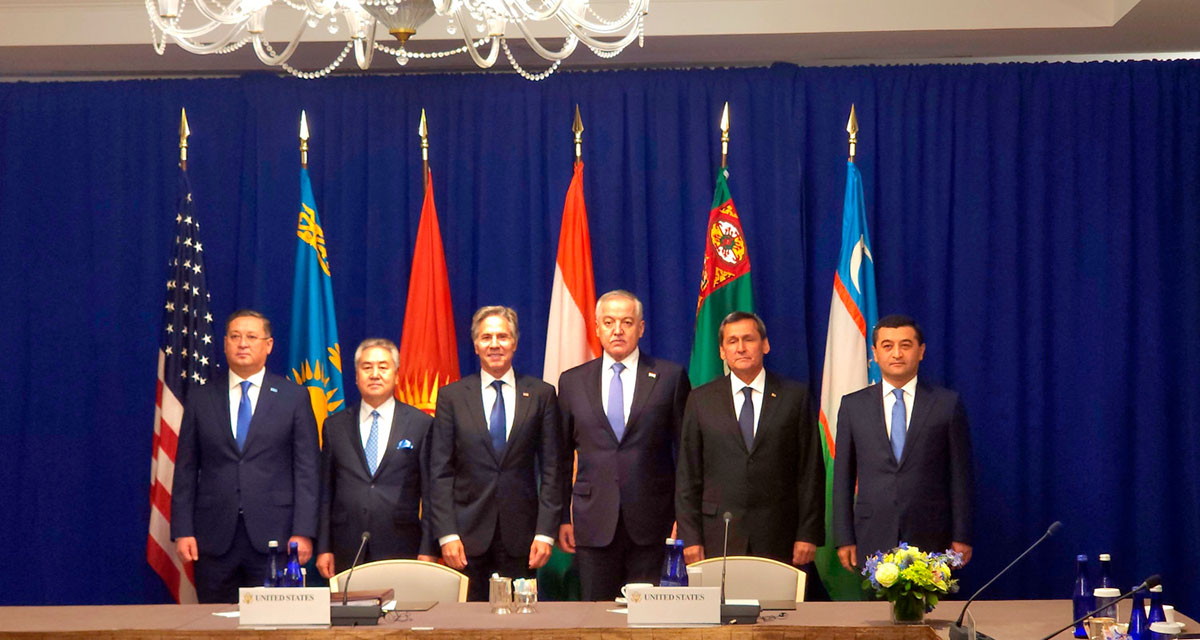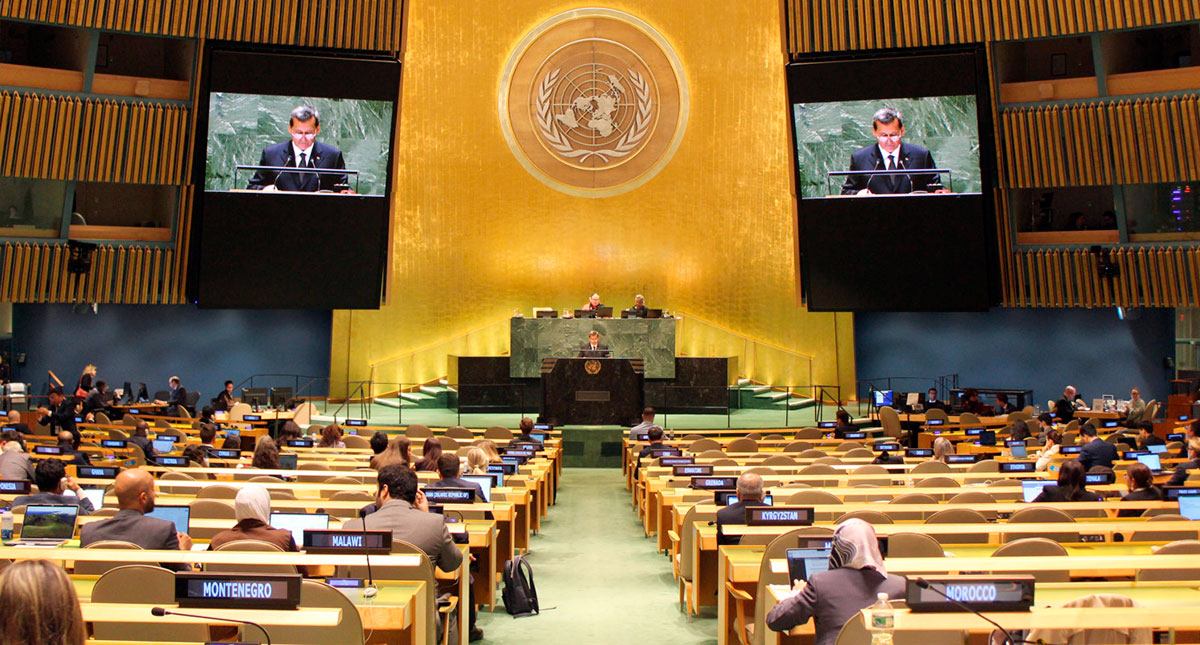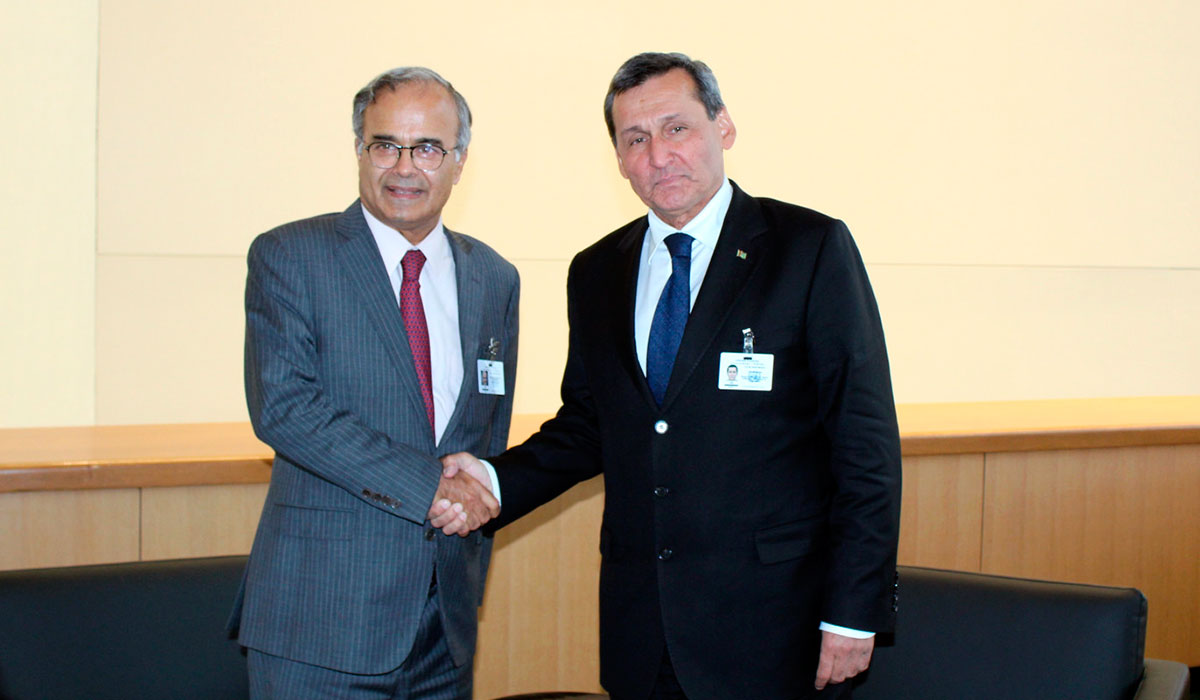The main outcome of the day was the adoption of the Ashgabat new initiative to reduce barriers to trade and transport using UN legal instruments, standards and recommendations, significantly increasing interconnectivity in the region.
The United Nations Special Programme for the Economies of Central Asia (SPECA) was launched in 1998 to strengthen subregional cooperation in Central Asia and its integration into the world economy. The countries of SPECA are Azerbaijan, Afghanistan, Kazakhstan, Kyrgyzstan, Tajikistan, Turkmenistan and Uzbekistan. The United Nations Economic Commission for Europe (UNECE) and United Nations Economic and Social Commission for Asia and the Pacific (ESCAP) jointly provide overall support to the activities under this Programme.
In frames of Turkmenistan’s presidency over the SPECA this year, all the main events are held in Ashgabat. The agenda of the 14th session of the SPECA Governing Council focused on the outcomes the Economic Forum “Interconnection: trade and transport facilitation and sustainable development in the SPECA subregion”, in particular, the adoption of the Outcome Document - the Ashgabat Initiative and recommendations.
Among the main issues of the meeting are the results of the work carried out since the previous session, the identification of prospects for further cooperation in the framework of this Programme and the approval of the SPECA Innovation Strategy for sustainable growth.
Welcoming the participants of the meeting, the representative of the Turkmen side noted that our state paid special attention to strengthening regional economic cooperation in Central Asia.
Occupying an exceptionally advantageous geographical position - at the strategic crossroads of the transport routes on the continent and possessing enormous transit potential - Turkmenistan calls for the development of mechanisms to build up productive partnerships in all areas.
In turn, high-ranking representatives of UNECE and ESCAP, as well as the heads of delegations of the Programme member states, assessing Turkmenistan’s presidency over SPECA this year, emphasized its role in strengthening cooperation in Central Asia.
In this context, those speaking highly evaluated the active position of President Gurbanguly Berdimuhamedov in ensuring the stable development, strengthening relations of friendship, good neighborliness and interaction between the states of the region and their peoples united by centuries-old historical and cultural ties.
Speaking about the importance of the Ashgabat meeting, the participants noted that its main theme was the simplification of trade and transport procedures and sustainable development - as the main vector of the SPECA work.
As noted, the creation of a quality infrastructure positively affects the expansion of trade and economic activity, optimizes the use of natural resources and reduces production and logistics costs.
In this context, the emphasis was placed on the importance of regional cooperation and integration of Central Asian countries, in particular, the most beneficial use of communication opportunities for sustainable and stable development of the region.
Speaking about the importance of the Ashgabat initiative, the meeting participants emphasized that the document was aimed at strengthening the regional market and cross-border supply chains, as well as improving the connectivity of the economies of the Programme countries to Europe and Asia, attracting new investments, technologies and innovations.
As emphasized in the document, joint activities will contribute to sustainable and inclusive growth in the region, will assist in implementing the 2030 Agenda for Sustainable Development.
At the same time, the key role in the global agenda was the simplification of trade and transport procedures by reducing the corresponding barriers in these areas. The implementation of the measures proposed in the outcome document is intended to stimulate the economic growth and increase the share of exports, thereby allowing more people to enjoy the benefits of intensified economic activity.
The subject of detailed discussion was the SPECA Work Plan for 2020-2021, a number of other organizational issues.
Summing up the meeting, the participants reaffirmed their readiness to continue a constructive dialogue, to strengthen effective interaction with the United Nations and its structural divisions, including UNECE, ESCAP and other international partner organizations in order to address the priority tasks of regional cooperation.
In general, SPECA Days demonstrated that our country, which is chairing the UN Special Program for the Economies of Central Asia in 2019, in fact confirms its status as an authoritative platform for discussing key issues of both a regional and global nature, developing new international formats cooperation taking into account current global development trends.






